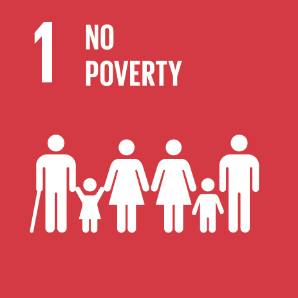OUR ETHICS
Investing in women’s economic empowerment is the key to achieving women's rights and gender equality.
When women have access to work, societies thrive, economies strengthen and become more equitable, and the education of women and girls improves — effectively breaking the cycle of poverty.
Saheli Women exists to provide women with access to fair, dignified, and meaningful employment.
Our artisans earn a fair wage — at least 50% above the national average for similar work — with shorter workdays of 6 to 7 hours, unlike the typical 12-hour shifts elsewhere in India and Bangladesh. But fair pay and hours are just part of our commitment. We actively remove employment barriers for women by providing skills training, transport assistance, health insurance, on-site childcare, flexible work options, and self-managed work schedules and holidays. At Saheli Women, we consciously create a safe and welcoming workplace that is free from gender, religious, and caste discrimination.
CODE OF CONDUCT
We are committed to the following fair trade principles outlined in the Ethical Fashion Initiative's Code of Conduct
• Employment is freely chosen
• Freedom of association is respected
• Working conditions are safe and hygienic
• Child labor is not allowed
• Fair wage is paid
• Discrimination is prohibited
• Regular employment is provided
• Treatment is never harsh or inhumane
• Working hours are not excessive
• Women design their own work schedule
These centers are joyous spaces where our artisans socialise together, brew chai, cook, bring their children, and celebrate Indian festivals. We also regularly open our doors to our wider community, hosting workshops on a broad range of topics such as human rights, feminism, menstrual hygiene, health, and financial literacy.
In response to our artisans' needs, our parent organization, IPHD, has evolved to support the broader community. Our Girls' Education Program improves access to high-quality education for all the girls in Bhikamkor, and our Female Health Program provides them with vital menstrual and reproductive health services.
Our Saheli Women centers are designed to feel like home.
SUSTAINABLE DEVELOPMENT GOALS
Since founding Saheli Women in 2015, we have committed to sustainable development goals (SDGs), understanding that success in one area influences the outcome of others. To achieve a balanced mix of economic, environmental, and social sustainability, we've embraced 9 SDGs that resonate with our ethos and guide all of our decisions.
Saheli empowers women by providing them with opportunities to develop their skills and earn fair wages, directly supporting the SDG of ‘Gender Equality’ (5).
We believe that women, when financially empowered, invest in nutritious food, healthcare, and their children's education, directly benefiting their families and communities. This not only lifts them out of poverty but also aligns with the SDGs of ‘No Poverty’ (1), ‘Good Health & Wellbeing’ (3), ‘Decent Work & Economic Growth’ (8), ‘Responsible Consumption & Production’ (12), and ‘Climate Action’ (13).
The positive effects of this spread well beyond these women’s immediate circle. Empowered women raise a generation of change-makers advocating for ‘Reduced Inequality’(10), ‘Quality Education’(4) and ‘Peace, Justice & Strong Institutions’(16). That is the ultimate butterfly effect we aspire to create with Saheli Women!







SUSTAINABILITY
Our collective is built on fairness, non-exploitation, and a commitment to sustainability, transparency, and women's empowerment.
-
50% of our total slow fashion production is upcycled sarees, reviving fabrics that hold stories of culture an tradition.
We also weave our own cotton and silk fabrics on the handloom.
-
In our block printing and natural dye processes, we always use AZO-free inks - AZO inks are known to be carcinogenic and often release chemicals during both the production process and use, which is why we refuse working with them. Instead we use a mix of vegetable/natural-dyes and sun-activated pigment inks, where the need for chemicals is avoided.
LEARN MORE
-
In May of 2023 we became an advisory committee member of the United Nations Conscious Fashion and Lifestyle Network, with which we aim to accelerate change and increase awareness for the importance of our work.
-
Our commitment to sustainable material usage also extends beyond the production of the garments: we package everything in reusable unbleached cotton or upcycled sari bags in order to minimise plastic waste.




